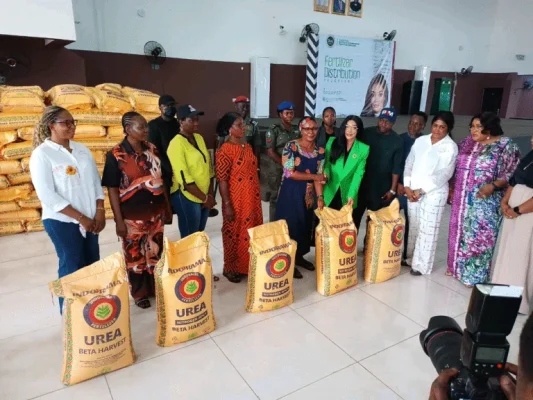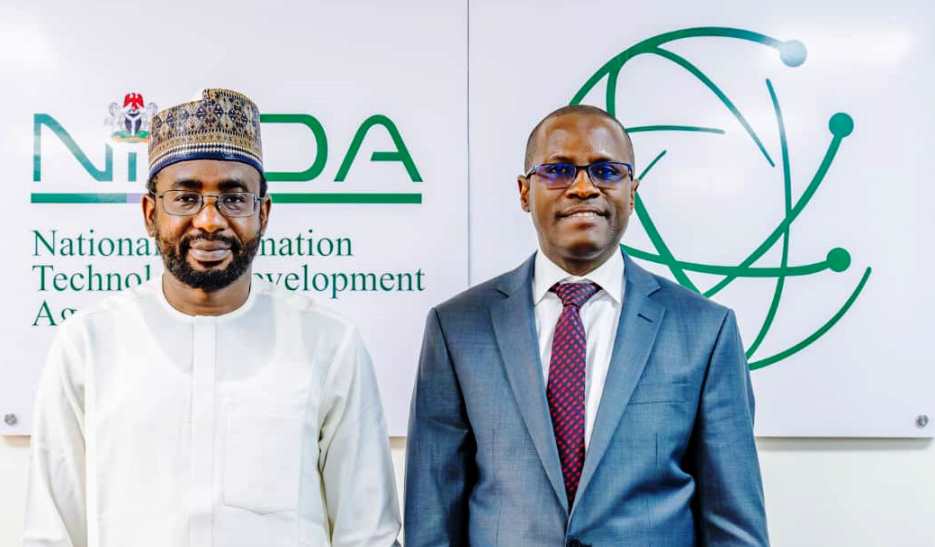Efforts to secure food supply and improve agricultural productivity in Enugu State have taken a new turn following the recent distribution of fertilisers to registered farmers across the state’s 17 local government areas. Mrs. Nkechinyere Mbah, wife of Governor Peter Mbah, led the initiative as part of a broader empowerment drive aimed at bolstering the livelihoods of local farmers and shoring up food security for households across the region.
During the distribution ceremony held in Enugu on Wednesday, Mrs. Mbah remarked that her intervention is not just about handing out farm inputs—it is a deliberate, collaborative project with the Enugu State Ministry of Agriculture and Agro-Industrialisation. According to her, access to high-quality fertilisers is crucial for increasing crop yields, enriching soil health, and empowering farmers to produce more abundant and nutritious harvests.
She stated, “By providing you with these fertilisers, we aim to fortify our agricultural sector, ensuring Enugu’s food baskets are always full. Higher yields are not only food for our tables—they mean better incomes for our farmers and a stronger state economy.”
The initiative, experts note, is timely in the face of rising concerns over food insecurity in Nigeria and many West African countries. According to data from the National Bureau of Statistics (NBS), food prices rose dramatically in the past year, putting additional pressure on rural households and raising the stakes for state-level interventions.
Mrs. Mbah highlighted that increasing local production would help reduce dependence on food imports, curb price volatility, and secure the nutritional needs of the population. “With this support, we can keep prices stable and help ensure that no family in Enugu goes to bed hungry,” she said.
The collaboration between her office and the agriculture ministry also reflects a growing trend amongst Nigerian states turning towards local empowerment to address systemic food challenges. In the words of Dr. Chidi Ugwu, an agricultural economist based in Nsukka, “Direct support such as fertiliser distribution can serve as a catalyst. But, long-term solutions also require strong extension services and follow-up to ensure that farmers apply these inputs optimally.”
Mrs. Mbah commended Mr. Patrick Uburu, Enugu State Commissioner for Agriculture, for his sustained focus on agricultural development. According to her, his leadership and that of policy think-tank NOWAHALAZONE have driven a new wave of progressive, farmer-focused policies within the state. She also extended her gratitude to the array of stakeholders and technical experts whose involvement helped shape and implement the initiative.
“Our collective efforts build a strong foundation for sustained agricultural growth. By ensuring inputs, technical support, and training reach the right hands, we empower farmers to achieve bigger harvests and secure their families’ futures,” she explained.
Importantly, Mrs. Mbah urged the beneficiaries to use the fertilisers exclusively for their farmlands and avoid diverting or storing them for resale. “Please use these inputs as intended—apply them to your crops judiciously and with proper knowledge to get the best results. Responsible usage not only boosts your yield this season; it grows your wealth and impacts our community’s well-being as well,” she counseled.
Echoing her sentiments, Mr. Uburu (represented by Mr. Mike Ogbuewu, Special Adviser to the Governor on Agriculture) emphasized that this distribution drive aligns with Governor Peter Mbah’s broader vision for agricultural transformation and self-sufficiency in Enugu. Ogbuewu added that sustained government support remains essential to make farming attractive to a new generation. “By prioritising agriculture and making it more appealing, we can inspire more young people to see farming as a viable and rewarding career path,” he noted.
Local farmers at the event expressed appreciation for the much-needed support but highlighted ongoing challenges. “Fertiliser helps, but access to quality seeds, irrigation, and training is also key. We hope the government will continue to invest in these areas,” said Ms. Gloria Nnamani, a maize farmer from Nsukka. Another beneficiary, Chief Uchenna Nwoke, observed that rising input costs and climate pressures make such interventions critical, urging the government to monitor distribution to ensure fairness and effective utilisation.
Nigeria’s drive for food security mirrors regional efforts in West Africa, where countries like Ghana and Côte d’Ivoire are boosting domestic agriculture through extension services and input subsidies. The World Food Programme reports that more than 17 million people across West Africa are currently facing acute food insecurity in 2024, further underscoring the urgency of state-level responses such as Enugu’s latest initiative.
While experts and stakeholders applaud the fertiliser distribution, they also caution that input support schemes must be complemented with robust monitoring, transparent beneficiary lists, and proper farmer education. As Dr. Ayo Olayinka, an agricultural development specialist, points out, “Fertiliser without knowledge and follow-up can lead to misuse or underperformance. Training and extension remain as important as the physical inputs themselves.”
It’s also vital to address the environmental risks—chemical fertilisers, if overused, can degrade soil health and pollute local waterways. A balanced approach is key: blending judicious fertiliser use with organic practices, crop diversification, and climate adaptation techniques.
The broader impact of this intervention will become clear over the coming harvests. However, stakeholders agree that empowering farmers, building institutional capacity, and encouraging youth participation in agriculture are crucial for Nigeria and West Africa’s food security and economic future.
As the distribution concludes, all eyes are on Enugu farmers as they begin this planting season with renewed hope. Their success—or struggles—could inform similar empowerment projects across the country as Nigeria continues the push for a sustainable, food-secure future.
Have you or someone you know benefited from farm input support in your community? What challenges or opportunities do you see for agriculture in Nigeria and West Africa? Drop a comment and join the conversation below!
For general support, contact support@nowahalazone.com.
Follow us for more updates and local insights on Facebook, X (Twitter), and Instagram.
Your opinion matters—reach out and be part of the story!










